Wholesale Teeth Whitening Strips: Regulatory & Compliance Checklist
- Wholesale Teeth Whitening Strips: Regulatory & Compliance Checklist
- Overview: why regulatory compliance matters for wholesale teeth whitening strips
- Scope: what this checklist covers for wholesale teeth whitening strips
- Key concept: product classification and why it matters
- Checklist item 1 — Ingredient review and compliant formulas
- Checklist item 2 — Safety assessment and toxicology
- Checklist item 3 — Product testing: stability, microbiology and challenge tests
- Checklist item 4 — Chemical testing and contaminants
- Checklist item 5 — Labeling, language and claims for wholesale teeth whitening strips
- Checklist item 6 — Manufacturing quality systems and GMP
- Checklist item 7 — Market-specific highlights: high-level comparison
- Checklist item 8 — Documentation: Product Information File and technical dossier
- Checklist item 9 — Claims substantiation and marketing compliance
- Checklist item 10 — Packaging, child-safety and disposal info
- Checklist item 11 — Import/export and customs documentation
- Checklist item 12 — Post-market surveillance and adverse event reporting
- Checklist item 13 — Batch traceability, recall readiness and insurance
- Checklist item 14 — Supplier audits and raw material control
- Checklist item 15 — Private label and contract manufacturing controls
- Checklist item 16 — Certifications and retailer expectations
- Checklist item 17 — Digital marketplace and e-commerce compliance
- Checklist item 18 — Practical launch timeline for wholesale teeth whitening strips
- Checklist item 19 — How Double White supports compliant wholesale supply
- Checklist item 20 — Practical next steps and decision matrix
- FAQ — Common questions about wholesale teeth whitening strips compliance
- Closing note: make compliance a sales-enabler, not a bottleneck
Wholesale Teeth Whitening Strips: Regulatory & Compliance Checklist
Overview: why regulatory compliance matters for wholesale teeth whitening strips
Wholesale teeth whitening strips are a high-demand oral-care SKU, but they sit at the intersection of cosmetics, OTC rules and health-safety expectations. Noncompliance risks recalls, fines, export/import holds, reputation damage and customer harm. For suppliers and private-label buyers, a clear regulatory & compliance checklist reduces commercial risk and speeds market access.
Scope: what this checklist covers for wholesale teeth whitening strips
This guide outlines the practical compliance steps you need when exporting, importing, manufacturing or distributing wholesale teeth whitening strips: product classification, testing and safety data, labeling & claims, market-specific highlights (US, EU, UK, Australia, China), GMP and documentation, post-market surveillance and recall readiness.
Key concept: product classification and why it matters
Classify your bulk teeth whitening strips correctly (cosmetic vs. medicinal/OTC vs. professional-use) before any testing or labeling. Classification determines premarket obligations, allowable claims, acceptable active ingredients and concentration limits. Always document your legal rationale for each target market.
Checklist item 1 — Ingredient review and compliant formulas
Start with a complete ingredients list and supplier Certificates of Analysis (COA). Verify each ingredient against the target market’s banned/restricted lists (for example, EU banned ingredients list or local cosmetic standards). For whitening agents (hydrogen peroxide, carbamide peroxide), identify whether their concentration changes the product classification in each market.
Checklist item 2 — Safety assessment and toxicology
Obtain a Cosmetic Product Safety Report (CPSR) or equivalent safety assessment performed by a qualified safety assessor for markets that require it. The safety assessment should include toxicology endpoints relevant to oral mucosa exposure, systemic toxicity assessment and margin of safety calculations.
Checklist item 3 — Product testing: stability, microbiology and challenge tests
Run accelerated and real-time stability tests on both bulk strips and final packaged units. Conduct microbial limits testing and preservative efficacy (challenge) tests to ensure shelf stability and safe use. Produce test reports with complete methods, dates and laboratory accreditation details.
Checklist item 4 — Chemical testing and contaminants
Test for heavy metals, residual solvents, peroxide assay (actual active content vs. labeled), and any other market-specific restricted substances (e.g., certain preservatives or colorants). Maintain COAs from accredited labs for each production batch.
Checklist item 5 — Labeling, language and claims for wholesale teeth whitening strips
Design labels that comply with local rules: ingredient declaration (INCI where applicable), net quantity, manufacturer/importer details, batch/lot number, use instructions, warnings, and expiration/PAO. Keep claims factual and avoid therapeutic assertions (e.g., cures or treats dental disease). For private-label buyers, ensure custom packaging also meets labeling rules.
Checklist item 6 — Manufacturing quality systems and GMP
Implement or verify ISO 22716-style cosmetic GMP compliance for manufacturing teeth whitening strips. Maintain batch records, supplier qualification files, in-process controls, environmental monitoring and personnel training records. For many buyers and retailers, documented GMP is a prerequisite for wholesale supply.
Checklist item 7 — Market-specific highlights: high-level comparison
Different jurisdictions have different premarket steps. The table below summarizes high-level differences for common export markets. Use this as a starting point and always confirm with local regulators or legal counsel.
| Market | Product classification (typical) | Premarket obligation | Key notes |
|---|---|---|---|
| United States | Usually cosmetic (whitening = cosmetic). If therapeutic claims made, may be drug/OTC | No routine federal premarket approval for cosmetics; color additives limited; voluntary registration available | Labeling and safety expectations enforced by FDA; avoid drug claims. Maintain safety data. |
| European Union | Cosmetic (subject to Cosmetic Regulation (EC) No 1223/2009) | Responsible Person, Product Information File (PIF), Cosmetic Product Safety Report (CPSR), CPNP notification | Strict safety reporting and banned ingredient lists; appoint a Responsible Person inside EU. |
| United Kingdom | Cosmetic — post-Brexit retained rules | UK Responsible Person & product notification to UK portal; safety assessment required | Follow UK-specific notification and labeling rules after EU exit. |
| Australia | Cosmetic or restricted chemical agent depending on peroxide content | Products with higher peroxide levels may be restricted/prescription-only; verify with TGA/state policies | Hydrogen peroxide concentrations are regulated; professional use requirements apply for some strengths. |
| China | Cosmetics regulated by NMPA; some whitening products fall under stricter filing/registration | Registration or filing with NMPA depending on product classification; local testing and labeling rules | Newer CSAR rules require clear documentation; work with an experienced local agent for filings. |
Checklist item 8 — Documentation: Product Information File and technical dossier
Build and maintain a complete product dossier for each SKU and each packaging variant: formulation, manufacturing process, full COAs, safety assessment, stability data, microbiology, labeling mock-ups, claim substantiation, and batch release records. For EU markets keep a PIF available and up to date.
Checklist item 9 — Claims substantiation and marketing compliance
Support every marketing claim with appropriate evidence: in-vitro testing, clinical performance tests or literature references, depending on the claim strength. Avoid implying disease treatment. Keep evidence files and SOPs for review by regulators or retail partners.
Checklist item 10 — Packaging, child-safety and disposal info
Design packaging that protects peroxide-containing gels from degradation (light/air/moisture). Include child-safety considerations if product could be hazardous to children. Provide disposal instructions where required by law or where hazardous components exist.
Checklist item 11 — Import/export and customs documentation
Ensure customs HS classification, commercial invoices, COA, free sale certificates (if requested), and any required country-specific certificates are prepared. For wholesale shipments, include batch traceability and export testing documentation to avoid border holds.
Checklist item 12 — Post-market surveillance and adverse event reporting
Implement a post-market surveillance (PMS) program to collect complaints, adverse reactions and field returns. Establish timelines and responsibilities for reporting serious adverse events to regulators as required (EU, UK, and other jurisdictions specify reporting windows). Maintain a corrective action/recall SOP.
Checklist item 13 — Batch traceability, recall readiness and insurance
Keep a reliable lot-coding system and retention samples for each batch. Prepare a recall playbook and designate a recall team. Consider product liability insurance that covers cosmetic/OTC oral-care products for wholesale distribution.
Checklist item 14 — Supplier audits and raw material control
Qualify and audit raw material suppliers (adhesive backing, gel suppliers, film) and require supplier COAs and change-notification agreements. Poor raw-material control is a common root cause of compliance failures.
Checklist item 15 — Private label and contract manufacturing controls
If supplying wholesale teeth whitening strips as private-label product, set clear contract terms on responsibility for compliance, labeling accuracy, claims approval, and corrective actions. Insist on written quality agreements and right-to-audit clauses with contract manufacturers.
Checklist item 16 — Certifications and retailer expectations
Major retailers and e-commerce platforms often require proof of GMP, COAs, and third-party test reports. Consider certifications like ISO 22716 (GMP) or independent lab verifications to increase buyer confidence and speed onboarding.
Checklist item 17 — Digital marketplace and e-commerce compliance
Online platforms have their own compliance checks and restricted product lists. Provide complete product files to marketplaces (ingredient lists, certificates, product images and claims substantiation). Misleading listings can lead to delisting and account suspension.
Checklist item 18 — Practical launch timeline for wholesale teeth whitening strips
Typical compliant launch timeline: chemistry and formulation validation (2–4 weeks); safety assessment and stability testing start (3–12 months depending on claims); packaging and labeling design (2–6 weeks); market-specific filings/notifications (varies); batch production and release (2–6 weeks once tests complete). Build buffer time for retesting and regulatory queries.
Checklist item 19 — How Double White supports compliant wholesale supply
Double White is a professional oral-care manufacturer experienced in research, development and global supply of teeth whitening kits, gels, pens and wholesale teeth whitening strips. We offer free samples, customized packaging, batch COAs, and support for documentation and testing. Our manufacturing follows strict scientific controls to help you meet retailer and regulatory expectations.
Checklist item 20 — Practical next steps and decision matrix
1) Classify product per target markets. 2) Commission safety assessment and baseline testing. 3) Implement GMP & build PIF/technical dossier. 4) Finalize labeling and claim substantiation. 5) Complete market notifications/filings and plan logistics. Use a decision matrix to mark Ready/Needs action for each item and market.
FAQ — Common questions about wholesale teeth whitening strips compliance
Q: Are teeth whitening strips considered cosmetics or drugs?
A: Most over-the-counter teeth whitening strips are treated as cosmetics when marketed for aesthetic whitening only. If you make therapeutic claims about treating disease, or if specific active thresholds trigger different regulatory treatment in a jurisdiction, the product may be regulated differently. Classify per market rules.
Q: Do I need clinical trials to sell whitening strips wholesale?
A: Routine cosmetic whitening claims usually do not require full clinical trials, but performance claims should be supported by appropriate evidence — in-vitro tests, consumer use studies or clinical data depending on the claim strength. Always document supporting evidence.
Q: Is there a universal peroxide limit for whitening strips?
A: There is no single global limit. Some jurisdictions impose concentration-based restrictions or professional-use limits (for example, certain countries restrict higher peroxide strengths to dental professionals). Verify limits for each target market and label accordingly.
Q: What documentation should I expect buyers to request?
A: Typical buyer requests: GMP certificate, COAs, stability & microbiology reports, safety assessment, label mock-ups, insurance certificates, and evidence of product notification or registration where applicable.
Q: How can Double White help with compliance?
A: Double White provides product development, formulation expertise, free samples, custom packaging, batch COAs and production capacity. We can support documentation generation and coordinate accredited testing through partner labs to help meet your market requirements.
Closing note: make compliance a sales-enabler, not a bottleneck
Regulatory and compliance work is an investment in brand trust and market access. For wholesale teeth whitening strips, a documented safety-first approach—proper testing, clear labeling, GMP and market-appropriate filings—reduces risk, shortens onboarding for buyers and accelerates sustainable growth. If you want assistance preparing dossiers, testing packages or private-label options, Double White can support end-to-end.
Recommended for you
Teeth Whitening Gel Cost LA - Double White
Effective Whitening Solutions with 5D Whitening Strips | Double White
What are the Best Teeth Whitening Strips on the Market? - Double White
Teeth Whitening Strips Permanent? - Double White
About Recipe Customization
How to ensure the stability and effectiveness of the formula?
We have a professional R&D team and strict quality control system to ensure the stability and whitening effect of the formula.
Can the formula be adjusted according to my requirements?
Yes, we can adjust and customize the formula according to your needs and requirements to meet your special needs.
About Customized Services
Can you assist with regulatory registration for different countries?
Yes, we can provide support.
About Product Choice
What is the difference between your teeth whitening patches and pens?
Our teeth whitening strips are a clear, easy-to-use patch, while our whitening pen is a portable, spreadable product. You can choose the product that suits you based on your personal preferences and usage habits.
About Cooperation Process
What steps does the collaboration process include?
The cooperation process mainly includes demand communication, sample confirmation, contract signing, production and production, quality inspection, logistics and distribution, etc.

HP Teeth Whitening Alcohol-free Strips HPNA-01
Discover Double White’s HP Teeth Whitening Alcohol-free Strips HPNA-01, the best teeth whitening strips designed for a brighter smile without irritation. Alcohol-free formula ensures gentle yet effective whitening. Achieve professional results safely and easily at home with these top-rated teeth whitening strips.

HP Teeth Whitening Alcohol-free Strips HPNA-02
Double White’s HP Teeth Whitening Alcohol-free Strips HPNA-02 offer effective, gentle whitening without alcohol. These best whitening teeth strips deliver visible results, making them the good teeth whitening strips choice for a brighter smile. Try our whitening strips for teeth today!

Hydrogen Peroxide Residue Free Teeth Whitening Strips RFHP01
Double White Hydrogen Peroxide Residue Free Teeth Whitening Strips RFHP01 deliver the best quick teeth whitening results without residue. These best teeth whitening strips offer safe, effective brightening for a confident smile. Experience one of the best teeth whitening products today.

Hydrogen Peroxide Residue Free Teeth Whitening Strips RFHP02
100% tooth surface residue-free teeth strips represents the latest white teeth technology. This new product has strong adhesion on the teeth, but when peeled off, no gel-like substance remains on the tooth surface, leaving the teeth bright. Like new, no cleaning required.
Send us your inquiry
Reach out to us through the form below or via the contact information provided.
Our dedicated team is committed to providing prompt and personalized responses to all your queries.
Please fill out the fields above with your full name, email address, and comment.
Copyright © 2025 Double White All Rights Reserved. Designed by gooeyun

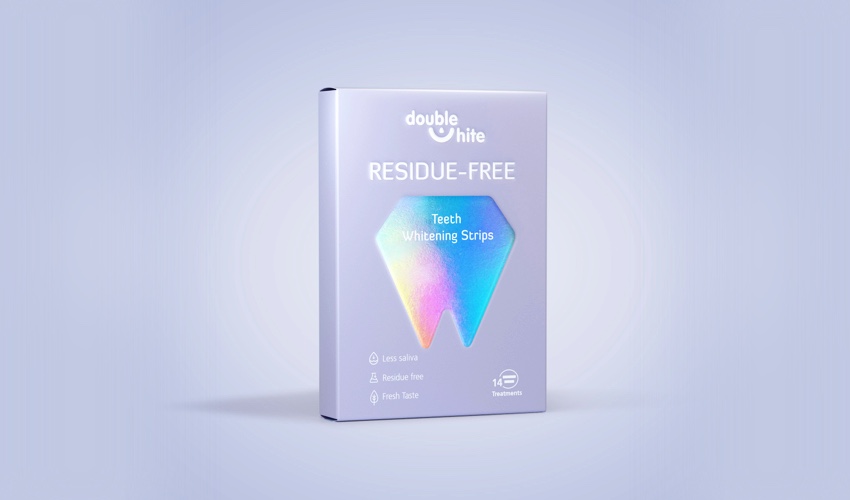
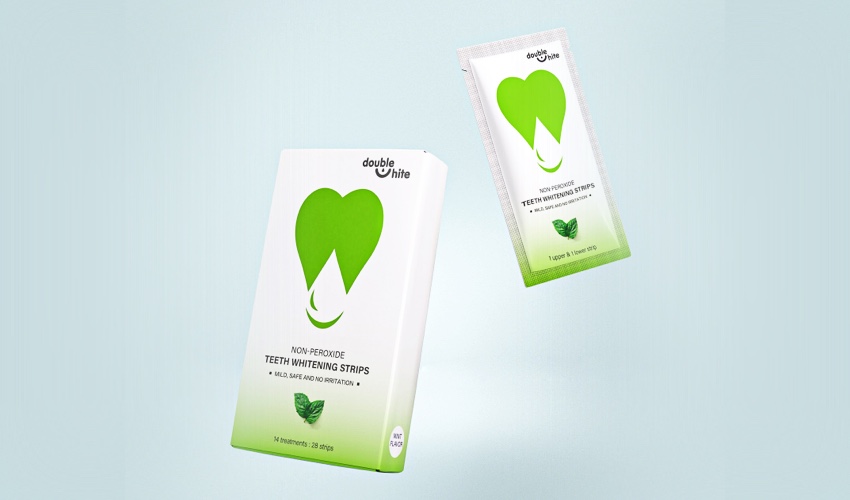
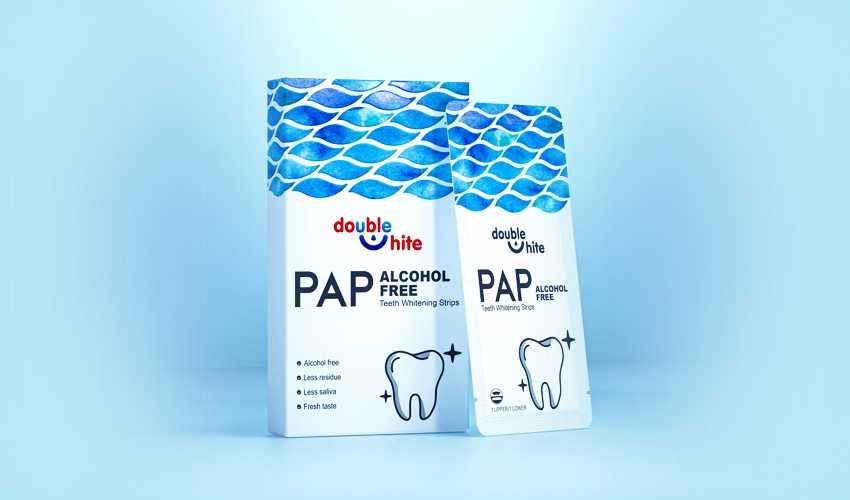
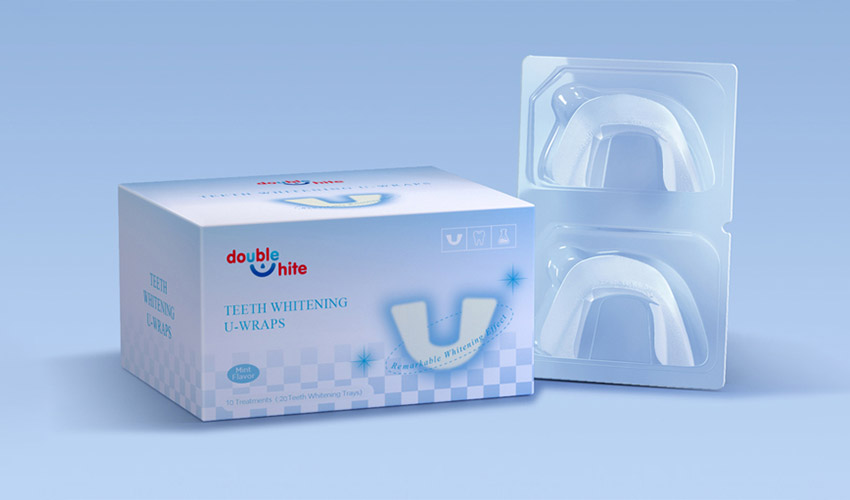
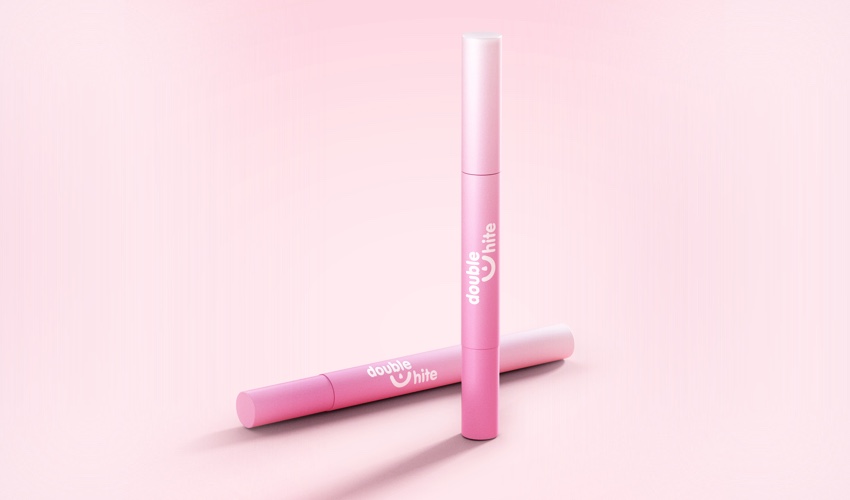
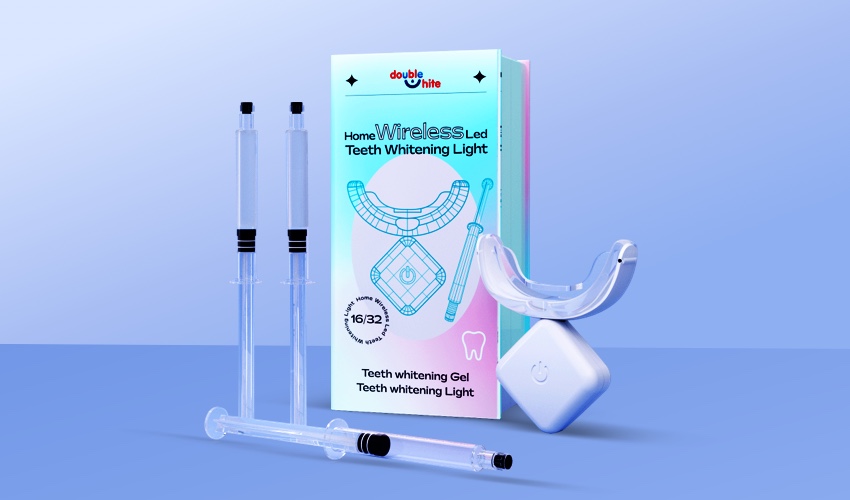
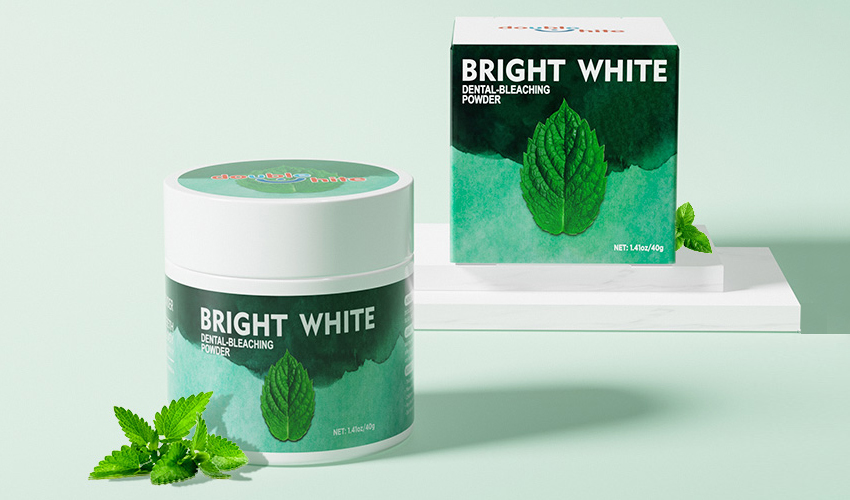






Whatsapp: +8615920313473
cndoublewhite
Doublewhite
doublewhitecn
cndoublewhite
cndoublewhite